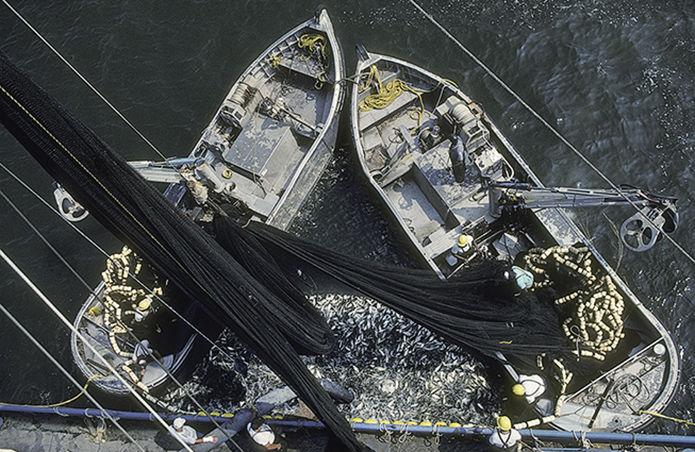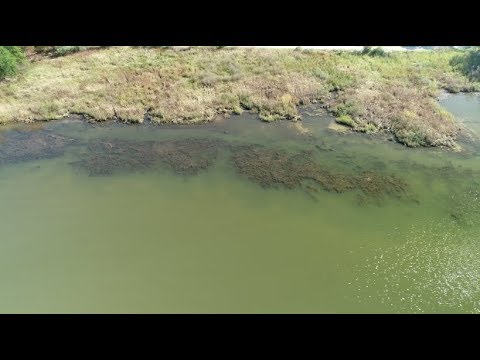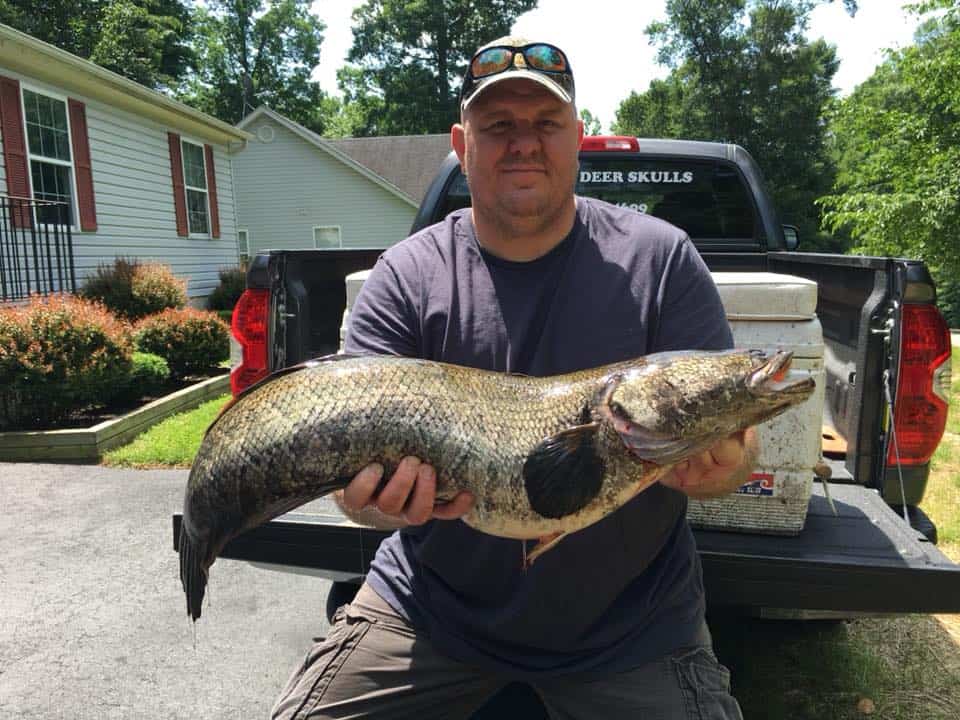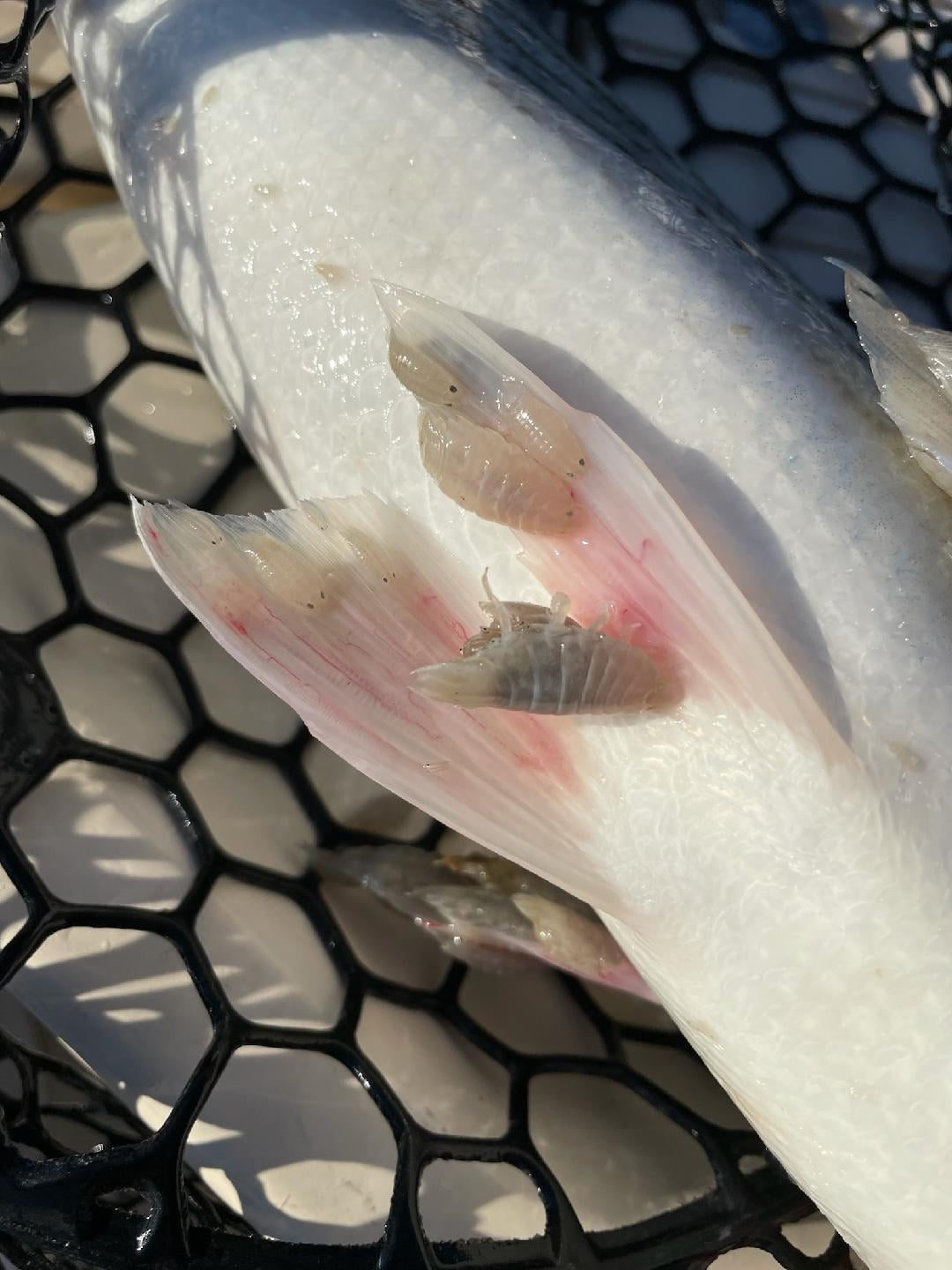By Timothy B. Wheeler, Bay Journal News Service
A pair of new petitions are pushing Virginia regulatory agencies to crack down on commercial menhaden fishing in the Chesapeake Bay—one on the damage purse seine fishing causes to Bay life and the other on the wastewater that menhaden boats pump back into the Bay.
One petition, submitted July 6 by Bill Dunn, an avid fisherman, calls on the Virginia Marine Resources Commission to bar purse seine fishing for menhaden in shallow Bay waters. It argues that nets used by fishing vessels owned by Ocean Harvesters, a subsidiary of Omega Protein, scrape along the bottom, contrary to industry best practice. Omega, based in Reedville, Virginia, processes menhaden into animal feed and fish oil for dietary supplements.
The dragging nets capture large numbers of fish other than menhaden, the petition says, and uproot submerged Bay grasses that provide habitat for crabs and fish. The nets also are prone to snagging and tearing as they drag along the bottom, which has spilled large numbers of dead fish into the water. There were several spills last year, causing an outcry and prompting the marine resources commission to negotiate an agreement with Omega to develop a quick-response protocol for future net tears.
The public comment period on the petition closes Aug. 21, and more than 300 supportive comments had been received by midmonth. The commission will then decide whether to go ahead with crafting such a regulation.
The other petition, filed July 21 by Andy Cortez, a member of the Virginia Anglers Club, asks the state’s Department of Environmental Quality to regulate water pumped from the menhaden fishing vessels as water pollution. The petition contends that the vacuum pump water discharged into the Bay by the Ocean Harvesters vessels contains dissolved organic matter, including nutrients and suspended solids.
“After a school of menhaden are caught in a purse seine, the fish are compressed into a tight ball, squeezing liquid from them and expelling waste as the fish struggle and die,” wrote Cortez. “This process generates water pollution. The mass of dying fish is then suctioned into the ship via a powerful vacuum pump where the fish and polluted water are separated. The fish go into the hold for profit and the polluted water goes over the side. No other fishery in Virginia uses vacuum pumps on the water.”
That petition is open for public comment through Sept. 4. Once the comment period ends, the State Water Control Board will decide whether to move forward with rulemaking.
The Atlantic States Marine Fisheries Commission, an interstate body, is responsible for managing the Atlantic menhaden population along the East Coast. In 2022, it found the stock is not overfished and approved a 20% increase in coastwide harvest.
The interstate commission has maintained a longstanding cap of 51,000 metric tons on harvests in the Chesapeake, but conservationists and sport anglers worry about the impact of any large-scale menhaden fishing near the mouth of the Bay on local fish and wildlife populations. Their concerns have only increased with the release of a study blaming osprey nesting failures in Virginia’s Mobjack Bay on a lack of menhaden for the birds to eat.
A spokesman for Omega Protein has dismissed as unfounded the assertions of a localized depletion of menhaden in Virginia’s portion of the Bay. To address the debate, state lawmakers have moved to study the condition of the Bay’s menhaden population.
Meanwhile, a hearing is set Sept. 7 in Richmond Circuit Court on a lawsuit brought by a group of Southern Maryland recreational anglers challenging the marine resources commission’s regulation of commercial menhaden harvests.
That case, filed May 10, contends that the Virginia Marine Resources Commission failed its legal obligation to protect menhaden from overfishing when it approved an increased commercial catch earlier this year. The suit also argues that the commission failed to consider the impacts of that harvest on species that depend on menhaden for food, including Atlantic striped bass and osprey.
The commission, through the attorney general’s office, has filed a motion to dismiss the lawsuit. It says the agency is bound by state law to permit the catch allowed by the Atlantic states fisheries commission. The fishing group counters that the Virginia commission has both the authority and the conservation obligation to limit harvests below what was set by Atlantic fisheries managers.




